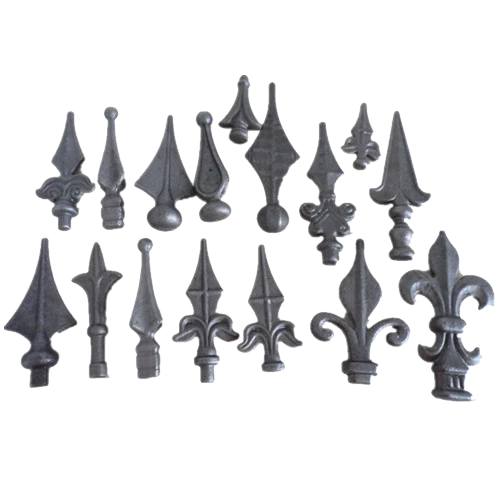Mobile:+86-311-808-126-83
Email:info@ydcastings.com
steel precision casting
The Significance of Steel Precision Casting in Modern Manufacturing
In the landscape of modern manufacturing, steel precision casting stands out as a pivotal technique that offers unparalleled accuracy, flexibility, and efficiency. This method, known for its ability to produce intricate shapes and high-quality components, has become increasingly vital in various industries, including aerospace, automotive, and industrial machinery.
Understanding Steel Precision Casting
Steel precision casting, also referred to as lost-wax casting or investment casting, is a process that involves creating a wax pattern of the desired component. The wax pattern is coated with a ceramic material to form a mold, which is then heated to remove the wax, leaving a hollow cavity in the shape of the part. Molten steel is poured into this cavity, and once cooled, the cast part is retrieved. This method allows manufacturers to create complex geometries and fine details that would be difficult or impossible to achieve with traditional machining techniques.
Advantages of Steel Precision Casting
One of the most significant advantages of steel precision casting is its precision. The process can achieve tight tolerances, often within a fraction of a millimeter. This high degree of accuracy minimizes the need for secondary machining operations, reducing production time and costs. Additionally, the smooth surface finish obtained from the casting process can eliminate or reduce the need for further finishing processes, which can also contribute to savings.
Another benefit is material efficiency. Because the casting process is capable of producing near-net shapes, less material waste occurs compared to processes that require extensive machining. This aspect is increasingly vital in a world that demands sustainability and reduced resource consumption.
steel precision casting

Flexibility is another hallmark of steel precision casting. Manufacturers can produce a wide variety of shapes and sizes, accommodating both small and large production runs. Whether it’s intricate components for an aircraft engine or durable parts for construction equipment, precision casting can cater to diverse needs, making it a versatile option for engineers and manufacturers.
Applications in Various Industries
The applications of steel precision casting are vast. In the aerospace industry, for instance, components such as turbine blades, landing gear, and structural parts are often produced using this method due to their complex shapes and critical performance requirements. Similarly, in the automotive sector, precision castings are utilized for engine blocks, gears, and other essential parts that require exceptional strength and durability.
Furthermore, industrial machinery manufacturers leverage precision casting to create robust components that can withstand harsh operating conditions. The ability to produce highly detailed parts ensures that these machines operate reliably and efficiently, which is crucial in today’s competitive market.
Conclusion
As industries continue to evolve, the demand for high-quality, cost-effective manufacturing processes will only increase. Steel precision casting plays a crucial role in meeting these demands by offering a combination of precision, flexibility, and material efficiency. With its ability to produce complex geometries and reduce waste, this casting method is not just a manufacturing technique; it is a gateway to innovation and sustainability in modern production. As technology advances and industries grow, the significance of steel precision casting is likely to expand, shaping the future of manufacturing in profound ways.
-
Understanding Metal Casting TechniquesNewsApr.02,2025
-
Understanding Exhaust Manifolds for Enhanced Engine PerformanceNewsApr.02,2025
-
The World of Metal FabricationNewsApr.02,2025
-
Key Components for Pump and Turbo EfficiencyNewsApr.02,2025
-
Essential Tools for Automotive Maintenance and RepairNewsApr.02,2025
-
Durable Valve Components for Effective Water ManagementNewsApr.02,2025











